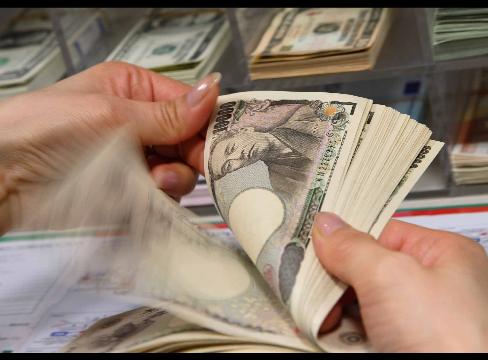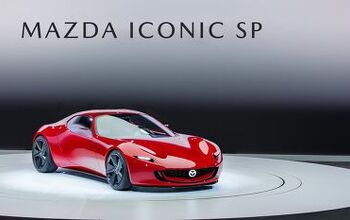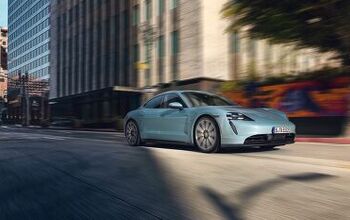Honda: Stronger Yen? We'll Make It Up With Volume

Honda is finally doing something against the ever stronger yen: They are selling more cars to make up the difference. Honda’s CFO Yoichi Hojo told The Nikkei [sub] today that his company can make profits, even with the yen at its current near-record high against the dollar, if it can increase its global sales by 200,000 vehicles per year. The figure is already in their current budget. In the current fiscal, which ends March 31,2011, the want to sell 3.615m vehicles worldwide, modestly up from 3.392m a year earlier. They’ll probably do better.
The Nikkei calls the comments “a rare example of optimism in the Japanese auto industry, as the strong yen cuts into profits and forces automakers to slash their earnings forecasts for the rest of the fiscal year.”
It’s not just the strong yen. It’s also the anemic dollar. Bernanke’s announcement of “quantitative easing” made the greenback take out the critical 1.40 level against the Euro. Currently, a buck buys 81 yen, or just about nothing in Tokyo. Don’t plan on any trips abroad this coming year.

Bertel Schmitt comes back to journalism after taking a 35 year break in advertising and marketing. He ran and owned advertising agencies in Duesseldorf, Germany, and New York City. Volkswagen A.G. was Bertel's most important corporate account. Schmitt's advertising and marketing career touched many corners of the industry with a special focus on automotive products and services. Since 2004, he lives in Japan and China with his wife <a href="http://www.tomokoandbertel.com"> Tomoko </a>. Bertel Schmitt is a founding board member of the <a href="http://www.offshoresuperseries.com"> Offshore Super Series </a>, an American offshore powerboat racing organization. He is co-owner of the racing team Typhoon.
More by Bertel Schmitt


































Comments
Join the conversation
The weak dollar is something companies have to get used to. Even before this recent financial collapse the dollars has weakened 23% since 2002 against major currencies of the developed world. Having to deal with a weak dollar has become part of doing business. Fortunately for Japanese companies like Honda they have had a long time to get used to this. Which is why Japanese companies have been diversifying outside America since and entering markets they were previously weak in and setting up production in countries that they haven't before. Thai made cars are the next big thing in Japan due to the brand new free trade agreement. Honda is setting up factories globally to hedge their currency risks. Honda have established an efficient global supply chain due to the expensive yen. Most of their cars are on a single platform, and there is a large amount of modularity and redundancy between their cars, this means that they can shift production between countries if one countries currency fluctuates over another.
Scouring the brainlet, recollecting way back when to 1975 or so, I seem to recall receiving 220 little Yen things for every USA dollar I handed over to the money changer who seemed mighty nervous every time a bearded dude clad in a flowing white robe strode by. With an admitted enfeebled mental acuity regarding manners money related due in part to an intrinsic problem manipulating numbers (and to think, as a lad I had a desire to become a nuclear physicist but even basic algebra sent my brain cells reeling throughout the confines of my cranium). I remain perplexed with the various mumblings regarding dollar this and ruble that and economic balances and so many other economic topics I just wish I could figger' out how it all relates to the intercontinental costs of a Moon Pie and a RC Cola.
Shouldn't be too hard for them, something like 90% of their North American sales are built in the US/Canada (and a few in Mexico),only some of the electronics and the transmissions are Japan-only products. The handfull that aren't built here are niches (the hybrids, the TSX, the RL). As US volumes creep back up and their Indiana plant finally goes 2 shifts, it will be interesting to see if it finally gets the Fit (which is the single highest-volume vehicle getting squeezed). We might also see more NA production going out of country, due to the price advantage.